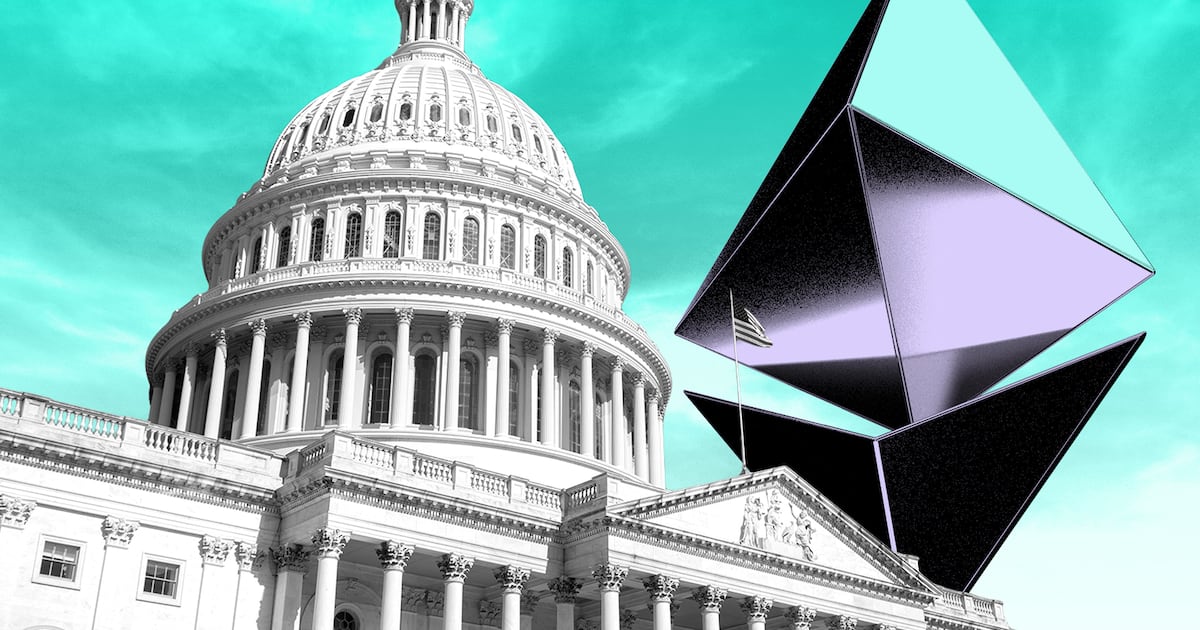- Two House committees voted to advance the Clarity Act on Tuesday.
- Democrats worry there’s a loophole in a so-called maturity test.
- Organisations that are certified as sufficiently mature, or decentralised, will enjoy fewer regulatory burdens, according to the bill.
Lawmakers advanced landmark crypto legislation on Tuesday during a pair of hearings. The bill, called the Clarity Act, would largely hand oversight of the crypto industry to the Commodity Futures Trading Commission.
But Democrats warned regulators could find themselves overwhelmed by a flood of crypto businesses seeking more favourable regulatory treatment by making false promises to decentralise their ownership and operations — what many in the crypto industry call “decentralisation theatre.”
The Clarity Act passed the House of Representatives’ Agriculture Committee on Tuesday in a 47-6 vote, with many Democrats voting in favor.
It later passed the House Financial Services Committee in a tighter 32-19 vote that followed a marathon hearing in which some Democrats took aim at provisions in the bill that would ease regulations for decentralised blockchains and eliminate them entirely for certain DeFi activities.
The Clarity Act is meant to end a regulatory turf war between the CFTC and the Securities and Exchange Commission.
The bill proposes lighter regulations for “mature blockchain systems,” blockchains and protocols that meet, or plan to meet, its definition of decentralisation. The bill also exempts many DeFi activities — such as operating certain crypto infrastructure or developing and publishing DeFi code — from those regulations altogether.
That has worried some Congressional Democrats, who fear the SEC — which is charged with reviewing claims of decentralisation — will be overwhelmed by applications from crypto companies seeking more lenient oversight.
‘Potential huge loophole’
Under the bill, the SEC would have up to 120 days to respond to organisations’ applications. If it fails to respond in that timeframe, an organisation can self-certify as mature.
The benefits of certification include fewer reporting requirements, more lenient rules regarding insider selling, and an easier path to listing on crypto exchanges.
“There are a bazillion crypto assets being spun up every day in this country and around the world,” Representative Bill Foster, a Democrat from Illinois, said.
“It seems to be an end run around all those by just saying, ‘Oh, I know it’s not that way now, but it’s my intention to be decentralised.’ It seems like that’s a potential huge loophole in this thing, and particularly when the SEC is undermanned.”
Representative French Hill, a Republican from Arkansas and the chair of the Financial Services Committee, said he wanted the SEC to receive whatever funding it felt necessary to review the applications, adding that SEC staff had helped lawmakers draft the bill.
Representative Bryan Steil, a Republican from Wisconsin, added that applicants can be held liable for making false or misleading statements on their applications, such as claiming nonexistent plans for decentralisation.
Democrats’ amendments
In the House Agriculture Committee, Republicans agreed to some Democrat-proposed amendments to the bill, including one that would allow the CFTC to charge a nominal registration fee to crypto exchanges and other intermediaries — money that would be used to help the CFTC handle the deluge of expected work.
Democrats’ amendments were shot down in the Financial Services Committee, however.
Those amendments included a ban on bailing out insolvent crypto companies, preventing the president and his family from launching their own crypto businesses, preventing the federal government from buying crypto, and ensuring both the SEC and CFTC continue to be led on a bipartisan basis.
Both agencies will be charged with hammering out additional rules should the bill pass. But President Donald Trump has threatened to upend the tradition of letting the minority party in congress nominate two people to serve on each commission.
“There’s a risk that there will be no democratic voice on the SEC to issue those rules,” Representative Sean Casten, a Democrat from Illinois, said.
“Unless you are of the opinion that Donald Trump is going to be the last president ever in the history of our republic, it’s in all of our interests for us to make sure that these committees are fully staffed,” he continued.
“Some rulemakings take time, and four years from now, when it’s President Lina Khan or President Gary Gensler or whoever else you are afraid of, this would also protect in that scenario.”
Aleks Gilbert is DL News’ New York-based DeFi correspondent. You can reach him at mailto:[email protected].
You can contact us for more informations or ads here [email protected]
